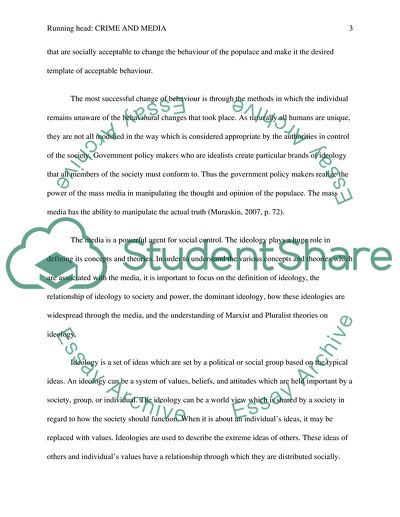Cite this document
(Formal and Informal Social Control Coursework Example | Topics and Well Written Essays - 2500 words, n.d.)
Formal and Informal Social Control Coursework Example | Topics and Well Written Essays - 2500 words. Retrieved from https://studentshare.org/social-science/1825514-course-criminology-uk-unit-crime-and-media
Formal and Informal Social Control Coursework Example | Topics and Well Written Essays - 2500 words. Retrieved from https://studentshare.org/social-science/1825514-course-criminology-uk-unit-crime-and-media
(Formal and Informal Social Control Coursework Example | Topics and Well Written Essays - 2500 Words)
Formal and Informal Social Control Coursework Example | Topics and Well Written Essays - 2500 Words. https://studentshare.org/social-science/1825514-course-criminology-uk-unit-crime-and-media.
Formal and Informal Social Control Coursework Example | Topics and Well Written Essays - 2500 Words. https://studentshare.org/social-science/1825514-course-criminology-uk-unit-crime-and-media.
“Formal and Informal Social Control Coursework Example | Topics and Well Written Essays - 2500 Words”, n.d. https://studentshare.org/social-science/1825514-course-criminology-uk-unit-crime-and-media.


